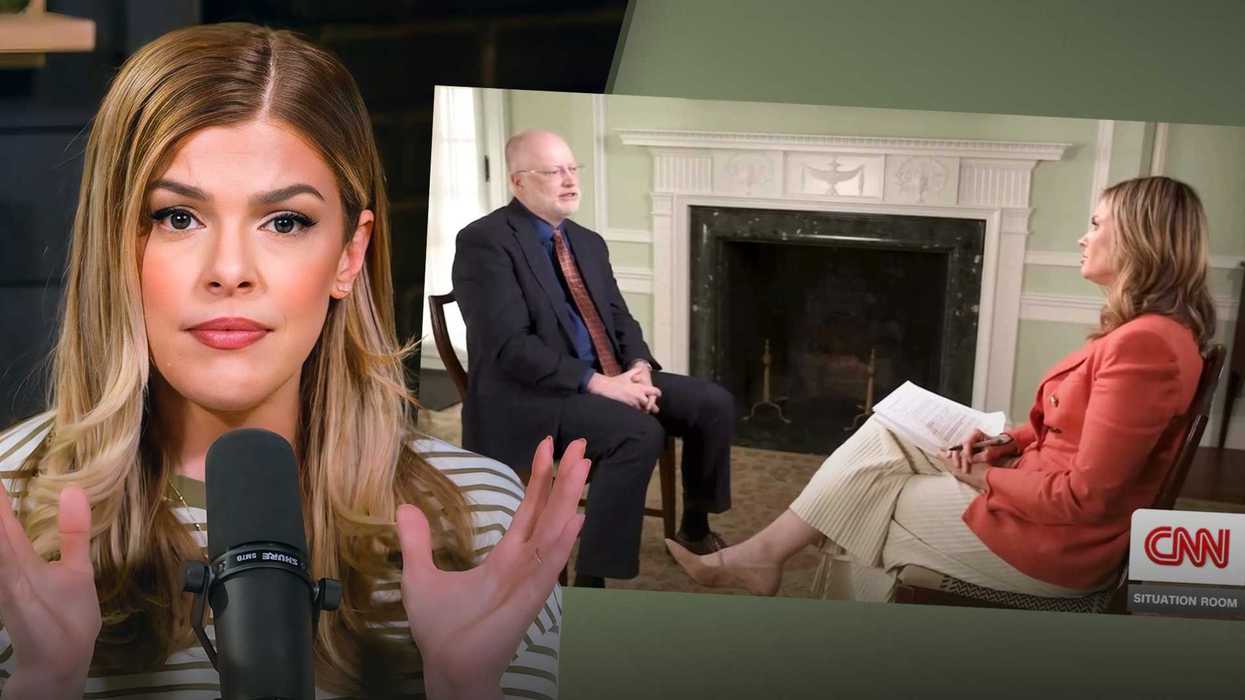© 2026 Blaze Media LLC. All rights reserved.
 Sen. Rand Paul, R-Ky., testifies before a state legislative committee on the legalization of growing hemp at the Capitol Annex in Frankfort, Ky., Monday, Feb. 11, 2013.Credit: AP
Sen. Rand Paul, R-Ky., testifies before a state legislative committee on the legalization of growing hemp at the Capitol Annex in Frankfort, Ky., Monday, Feb. 11, 2013.Credit: AP
Sen. Rand Paul (R-Ky.) began an actual talking filibuster against the nomination of John Brennan as CIA director on Wednesday, a move the Senate hasn't seen in a while.
Most in the political chattering class say when Paul, who said at the start "I will speak until I can no longer speak," finishes, Brennan will be inevitably confirmed. So what's a filibuster and how's this going to end?
A filibuster is when a senator holds up a vote. Technically, it refers to a senator talking on the Senate floor to hold up the vote, but in modern times, one need only inform the Senate majority leader that he will filibuster. The leader will usually then simply hold up the vote until an agreement to proceed is reached. Sixty votes are needed to end filibuster, which is known as cloture. Once cloture has been attained, debate can follow on a proposed bill or appointment and then it is voted upon.
Senate leaders in both parties adjusted the rules of the filibuster in January. The changes essentially reduced the number of hours of debate that can happen post-cloture, shorten the time it takes to officially confirm judicial nominees who has been voted on and guarantee the minority party will be able to offer two amendments to any bill. The changes, however, did not affect presidential appointees to circuit-level courts or cabinet positions, according to CQ Roll Call. The changes also did not prevent individual senators from stalling votes by threatening to filibuster or actually do it by talking indefinitely on the Senate floor.
As for how it'll end, that depends on how long Paul wants to stand on the floor talking.
The last time the Senate saw this kind maneuver, via the Huffington Post:
The last "talking" filibuster was in 2010, when Sen. Bernie Sanders (I-Vt.), spoke out against extending the Bush-era tax cuts. Filibuster reform advocates have proposed returning to this old-fashioned style.
Though the January changes to the filibuster rule didn't state a senator must actually be speaking on the floor to hold up business, that's the route Rand has taken.
When Rand made clear his intent to filibuster Wednesday, Democratic Whip Sen. Dick Durbin (D-Ill.) told Roll Call that "if this is an indication of where we’re headed, we need to revisit the rules again."
Want to leave a tip?
We answer to you. Help keep our content free of advertisers and big tech censorship by leaving a tip today.
Want to join the conversation?
Already a subscriber?
more stories
Sign up for the Blaze newsletter
By signing up, you agree to our Privacy Policy and Terms of Use, and agree to receive content that may sometimes include advertisements. You may opt out at any time.
Related Content
© 2026 Blaze Media LLC. All rights reserved.
Get the stories that matter most delivered directly to your inbox.
By signing up, you agree to our Privacy Policy and Terms of Use, and agree to receive content that may sometimes include advertisements. You may opt out at any time.






